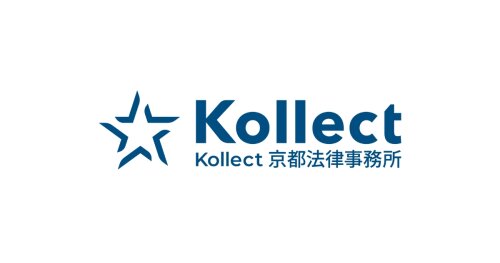Best Merger & Acquisition Lawyers in Kyoto
Share your needs with us, get contacted by law firms.
Free. Takes 2 min.
List of the best lawyers in Kyoto, Japan
About Merger & Acquisition Law in Kyoto, Japan
Merger and acquisition (M&A) activities in Kyoto, Japan, involve the consolidation of companies or assets through various forms of financial transactions, including mergers, acquisitions, consolidations, tender offers, purchase of assets, and management acquisitions. Given Kyoto's unique blend of traditional industries and burgeoning tech sector, M&A law here plays a crucial role in facilitating strategic corporate growth and restructuring. M&A transactions can be complex, requiring careful planning and execution within both domestic and international legal frameworks.
Why You May Need a Lawyer
Engaging a lawyer in the M&A sector in Kyoto might be necessary in several instances. For instance, if you're looking to buy or sell a company, legal advice is crucial to ensuring the transaction is fair and compliant with regulations. Lawyers can assist in conducting due diligence, drafting and negotiating contracts, securing financing, and navigating regulatory approvals. In cross-border transactions, legal expertise is indispensable to bridge the gaps between differing legal systems and business practices.
Local Laws Overview
Kyoto, like other parts of Japan, subjects M&A activities to stringent local laws to ensure compliance and protect shareholder rights. Key aspects include antitrust laws that regulate monopolistic practices under the Japanese Antimonopoly Act, securities regulations governed by the Financial Instruments and Exchange Act, and corporate governance requirements as dictated by the Companies Act. Additionally, foreign corporations looking to acquire Japanese companies must abide by the Foreign Exchange and Foreign Trade Act. Local ordinances may also influence certain industry-specific transactions.
Frequently Asked Questions
What is the first step in initiating an M&A transaction in Kyoto?
Typically, the first step is to engage in preliminary discussions and confidentiality agreements to protect sensitive information as parties begin negotiations.
How important is due diligence in M&A transactions?
Due diligence is critical as it allows the acquiring company to assess the value and risks associated with the target company, identifying potential liabilities or issues that could affect the transaction's success.
What regulatory approvals are needed for M&A in Kyoto?
Approval may be needed from government bodies such as the Japan Fair Trade Commission to ensure compliance with antitrust laws, and potentially other sector-specific regulators depending on the industry.
Can foreign entities easily participate in M&A transactions in Kyoto?
Yes, foreign entities can participate, however, they must comply with the Foreign Exchange and Foreign Trade Act, which may require advance notifications or approval for certain sectors.
What are common challenges in cross-border M&A transactions?
Challenges include navigating different legal and regulatory systems, cultural differences, integration issues, and strategies to protect intellectual properties.
How are employees affected in a merger or acquisition?
Employee contracts, conditions, and benefits may be renegotiated or transferred, subject to labor laws and union agreements, which necessitate careful legal consideration.
What is the role of a lawyer in post-merger integration?
Lawyers assist in ensuring the smooth integration of operations, advising on compliance with applicable laws, and resolving any disputes that arise from the transaction.
How long does an M&A transaction usually take?
The timeline can vary significantly, ranging from several months to over a year, depending on the complexity and scale of the transaction, along with necessary regulatory approvals.
Is it necessary to notify the Japanese government about M&A transactions?
Certain transactions, especially those involving foreign entities or sensitive sectors, may require notification or approval to ensure compliance with national security policies.
What happens if a proposed merger is challenged by the antitrust authorities?
If a merger is challenged, the involved parties must either negotiate remedial actions to address antitrust concerns or abandon the merger, subject to legal review and possible litigation.
Additional Resources
For further guidance on M&A, you may consult resources such as the Japan M&A Center, the Japan Fair Trade Commission, and the Financial Services Agency. Additionally, professional organizations like the Japan Federation of Bar Associations can provide assistance in finding qualified legal professionals.
Next Steps
If you are seeking legal assistance in the field of M&A in Kyoto, the best approach is to contact a law firm specializing in corporate law. You should prepare a detailed overview of your intended transaction, including goals, potential challenges, and preliminary agreements. Legal professionals can guide you through due diligence, contract drafting, negotiation, and compliance with both local and international laws. Engaging a knowledgeable and experienced lawyer early in the process can ensure a smooth and successful transaction.
Lawzana helps you find the best lawyers and law firms in Kyoto through a curated and pre-screened list of qualified legal professionals. Our platform offers rankings and detailed profiles of attorneys and law firms, allowing you to compare based on practice areas, including Merger & Acquisition, experience, and client feedback.
Each profile includes a description of the firm's areas of practice, client reviews, team members and partners, year of establishment, spoken languages, office locations, contact information, social media presence, and any published articles or resources. Most firms on our platform speak English and are experienced in both local and international legal matters.
Get a quote from top-rated law firms in Kyoto, Japan — quickly, securely, and without unnecessary hassle.
Disclaimer:
The information provided on this page is for general informational purposes only and does not constitute legal advice. While we strive to ensure the accuracy and relevance of the content, legal information may change over time, and interpretations of the law can vary. You should always consult with a qualified legal professional for advice specific to your situation.
We disclaim all liability for actions taken or not taken based on the content of this page. If you believe any information is incorrect or outdated, please contact us, and we will review and update it where appropriate.










